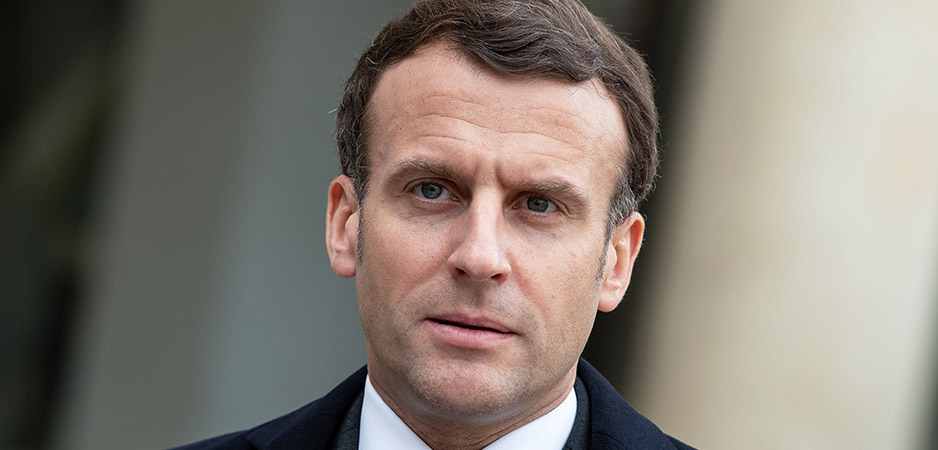Across the globe, democracy appears to be in a curious state. One of the main indicators of the health or pathology of democracy is the turnout in elections. Some might claim that the high turnout for the Biden-Trump face-off last year was a sign of health for US democracy.
But the aftermath — marked by the “stop the steal” movement, a riotous occupation of the Capitol building and a continued spirit of revolt by a significant proportion of the citizenry as well as some prominent politicians — reveals that the spectacular numbers achieved by both candidates in the presidential election were a sign of high fever in the body politic rather than healthy democratic engagement. Many commentators noticed that voting against a particular candidate — Hillary Clinton in 2016, Donald Trump in 2020 — rather than voting for a preferred candidate may have been the determining factor in those two elections.
The Sad Reality of US Dealmaking
Iran’s presidential election on June 18 was notable for its low turnout. But that is what everyone expected. Iran’s centrally controlled electoral system, emanating from a strictly hierarchical governmental structure in which the power of the president is extremely restricted, produces elections that are more accurately referred to as “selections.”
Though the two-party system in the US, sometimes referred to as a “duopoly,” leaves itself open to a similar critique, Western democracies still hold onto the idea that elections are expressions of vox populi, reflecting the will of the people. The general trend noted in recent years and in many democratic nations toward levels of abstention that often dip below 50% indicates that belief in democracy as a viable representative form of government may be far less solid than politicians and educators like to affirm.
France set a record on June 20 for its combined departmental and regional elections, two distinct opportunities to vote on the same day in the same place. With nearly 33.3% showing up to vote, two-thirds of the electorate simply didn’t bother. The only worse showing was in a referendum in 2000, where only 30% of the electorate bothered to vote on shortening the length of a presidential term. On Sunday, the abstention figure was dramatic enough, in any case, for President Emmanuel Macron’s press secretary to term it “abyssale” (abysmal).
Today’s Daily Devil’s Dictionary definition:
Abyssale:
A French adjective, usually translated in English as “abysmal,” but with a more literal meaning that serves to compare what is being described to a literal abyss, something most French people also consider to be an appropriate characterization of the level of competence and efficacy of the current French government and more generally of the political class
Contextual Note
Macron’s government has every reason to deem the result of this first round abysmal. Occurring less than a year before the 2022 presidential election in which Macron hopes to break the recent trend of one-term presidents (Nicolas Sarkozy and Francois Hollande), the media and the pollsters regarded these local elections primarily as an indicator of what to expect in next May’s contest. The majority party — itself a “bricolage,” an assemblage cobbled together after Macron’s freak parting of the Red Sea in 2017 — performed particularly badly, not even attaining the 10% required to remain in the running for the second round in five of the 13 regions.
For most of his term, Macron has had low approval ratings. He has never earned the admiration of the masses that presidents of the Fifth Republic once managed to achieve, though there have been moments when the French were willing to respect his apparent competence. This was especially true after his initial response to the COVID-19 pandemic. But there are other moments, far more frequent, in which his popularity has not only faded, but Macron himself has become an object of public scorn. The yellow vest movement that raged in 2018 and 2019 is the closest thing in modern times to the kind of popular revolt immortalized during the French Revolution that more than two centuries ago, at least provisionally, abolished the monarchy.
The commentators were even more surprised by the unexpectedly low score of Marine Le Pen’s right-wing populist party, the National Rally, formerly the National Front. The media have been building up the idea that the second round of next year’s presidential election will inevitably be a remake of 2017, with a rising Le Pen challenging a fading Macron, a recipe for anguished suspense among those less tempted by fascism. Over the next week, and immediately following the second-round results, the pundits will begin drawing conclusions about what this tells us about who will actually be present in the second round next year and how they may fare.
The same pundits may even decide that it means nothing at all, given the rate of abstention. Prognostication has suddenly become a more difficult exercise. The manifest indifference of the electorate to everything that politicians believe is important does, however, tell us something about the state of democracy in France in what may be the waning years of the Fifth Republic. L’Obs, a left-center weekly, cites what it calls “fatigue démocratique,” a weariness with the very rituals of democracy.
Historical Note
The one dramatic indicator early commentators have highlighted is the apparent victory of the traditional right that had formerly been humiliated, finding itself in a no-man’s-land between Emmanuel Macron’s increasingly right-wing neoliberal center and Marine Le Pen’s xenophobic right-wing nationalism. Some see it as a sign of rejuvenation for the Gaullist tradition. The former Républicain, Xavier Bertrand, who has a credible claim to representing the right in next year’s election, has been trying to resist Macron’s sedulous attempt to laminate the traditional right by adopting not only its policy themes, but also the demagogic Islamophobia of Le Pen’s party.
President Macron, the self-declared centrist, was counting on using his status as incumbent to position himself in a way that would make him attractive to a full range of voters on the right, while assuming that in his contest with Le Pen in the second round, he would also pick up most of the voters on the left who would be afraid to abstain. This could be compared on some points with Joe Biden’s successful strategy in the 2020 US presidential election.
Les Républicains appear as the real winners for the moment, if only because they have thrown a wrench into Macron’s 2022 strategy. There now may be a stronger likelihood that Bertrand will reach the second round opposite Macron, or possibly even opposite Le Pen. This is a cause of deep embarrassment, if not consternation. The combination of Le Pen’s low score and Bertrand’s success means that the traditional right — whose continuity dates back to Jacques Chirac and, ultimately, Charles De Gaulle, the founder of the Fifth Republic — may have recovered its mojo that so suddenly faded in 2017 following the scandals of its leading candidate, Francois Fillon, and its most recent president, Nicolas Sarkozy. The latter was recently convicted for electoral fraud and has been sentenced to six months in prison.
The media hasn’t begun asking the real historical question that underlies this curious drama. The parties are one thing, but what about the French people? What do they think, and what do they want at this historical “inflection point,” to quote Biden? The yellow vest spirit is still floating in the air, maybe even permeating the atmosphere.
The only candidate to have dared to talk about the eventuality of a Sixth Republic is Jean-Luc Melenchon, the left-wing populist candidate who fared honorably in the first round of the 2017 election at a moment when the once conquering Socialist Party imploded. The French media refuse to take Melenchon seriously, except as a foil to the legitimate pretenders. He has been cast in the role of the French Jeremy Corbyn or Bernie Sanders, with a stronger intelligence, a more marked strain of rebelliousness against the establishment, but less charisma. Though he could never win a presidential election, he is still the strongest political personality on the left.
With other crises brewing — a pandemic still dragging on, hints of a possible new global financial crisis, a deepening climate crisis, exacerbated European instability, complemented by shaky leadership in the US — the French may simply be wondering how voting for anyone promises to accomplish anything worthwhile.
*[In the age of Oscar Wilde and Mark Twain, another American wit, the journalist Ambrose Bierce, produced a series of satirical definitions of commonly used terms, throwing light on their hidden meanings in real discourse. Bierce eventually collected and published them as a book, The Devil’s Dictionary, in 1911. We have shamelessly appropriated his title in the interest of continuing his wholesome pedagogical effort to enlighten generations of readers of the news. Read more of The Daily Devil’s Dictionary on Fair Observer. Editor’s note: An earlier version of this article referred to Xavier Bertrand as the current leader of Les Républicains. Updated on June 24, 2021.]
The views expressed in this article are the author’s own and do not necessarily reflect Fair Observer’s editorial policy.
Support Fair Observer
We rely on your support for our independence, diversity and quality.
For more than 10 years, Fair Observer has been free, fair and independent. No billionaire owns us, no advertisers control us. We are a reader-supported nonprofit. Unlike many other publications, we keep our content free for readers regardless of where they live or whether they can afford to pay. We have no paywalls and no ads.
In the post-truth era of fake news, echo chambers and filter bubbles, we publish a plurality of perspectives from around the world. Anyone can publish with us, but everyone goes through a rigorous editorial process. So, you get fact-checked, well-reasoned content instead of noise.
We publish 2,500+ voices from 90+ countries. We also conduct education and training programs
on subjects ranging from digital media and journalism to writing and critical thinking. This
doesn’t come cheap. Servers, editors, trainers and web developers cost
money.
Please consider supporting us on a regular basis as a recurring donor or a
sustaining member.
Will you support FO’s journalism?
We rely on your support for our independence, diversity and quality.






